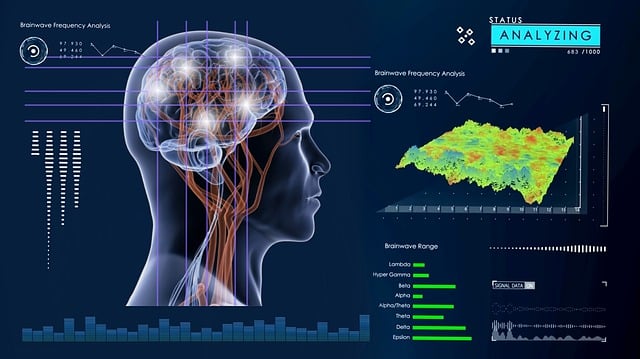The integration of artificial intelligence (AI) into search engines has markedly transformed how users interact with and retrieve information online. AI's advanced capabilities enable more precise and contextually relevant search results by understanding not just keywords but the intent behind queries. Machine learning algorithms analyze user behavior, preferences, and patterns to predict and deliver tailored content, enhancing efficiency and saving time. Natural language processing allows for complex searches to be understood and answered accurately, even when queries are vague or incomplete. Predictive analytics anticipate user needs based on their history, offering contextually relevant suggestions. These AI-driven search engines continuously learn from interactions, refining their algorithms to improve accuracy. As AI technology progresses, we can expect a future where search engines become increasingly intuitive and multimodal, allowing users to interact using voice or visual inputs, and generating concise summaries and new content based on user queries. The evolution of AI in search promises to make the process more seamless and personalized, revolutionizing access to digital information and reshaping the future landscape of information retrieval. Keywords: artificial intelligence search, machine learning, natural language processing, voice search, predictive analytics, user experience enhancement.
In an era where information is abundant yet fragmented, artificial intelligence (AI) has emerged as a transformative force in search. This article delves into the synergistic fusion of AI and search, marking a profound shift in how we retrieve information. We explore the evolution of AI within search engines from rudimentary query processing to sophisticated understanding, sheddding light on the pivotal role of machine learning algorithms that underpin advanced search capabilities. Furthermore, we examine how AI is enhancing user experience through personalization and predictive features, setting a new standard for information accessibility. As we peer into the future landscape of AI in search, we anticipate the next frontiers in query interpretation and response, poised to redefine our interaction with the vast digital knowledge base. Join us as we navigate the intricate intersection of artificial intelligence and search.
- Unveiling the Synergy of Artificial Intelligence and Search: A Paradigm Shift in Information Retrieval
- The Evolution of AI in Search Engines: From Simple Queries to Sophisticated Understanding
- Machine Learning Algorithms: The Backbone of AI-Enhanced Search Capabilities
- Enhancing User Experience: Personalization and Predictive Features in AI-Driven Search
- The Future Landscape of AI in Search: Anticipating the Next Frontiers in Query Interpretation and Response
Unveiling the Synergy of Artificial Intelligence and Search: A Paradigm Shift in Information Retrieval

The integration of artificial intelligence into search engines has marked a significant paradigm shift in how information is retrieved and utilized. AI algorithms have evolved to understand not just keywords but the context and intent behind user queries, leading to more precise and relevant search results. This advancement enables users to navigate through vast amounts of data with greater efficiency, as AI systems learn from interactions to predict and provide the most pertinent information. The machine learning capabilities within these AI models allow them to adapt over time, ensuring that search engines become more intuitive and responsive to user behavior. As a result, the synergy between artificial intelligence and search is not just enhancing the user experience but also redefining how we interact with digital content.
Furthermore, the application of AI in search extends beyond surface-level improvements. It encompasses sophisticated natural language processing techniques that can interpret complex queries, voice search functionalities that mimic human speech patterns, and predictive analytics that anticipate user needs. The implications of these advancements are profound, as they enable search engines to serve as more dynamic and personalized tools. This evolution is not just a technological leap but a fundamental change in the way we access and manage information, making artificial intelligence search a pivotal focus area for future developments in this field.
The Evolution of AI in Search Engines: From Simple Queries to Sophisticated Understanding

The integration of artificial intelligence (AI) into search engines has undergone a transformative journey, dramatically reshaping how users interact with information. Initially, search engines were rudimentary tools that matched keywords to simple queries, returning results in a linear and straightforward manner. Over time, AI algorithms have grown exponentially more sophisticated. These advances have enabled search engines to understand the nuances of natural language, decipher user intent, and deliver contextually relevant results with unprecedented accuracy. Machine learning models, powered by AI, analyze vast amounts of data to predict what users seek and refine their search algorithms accordingly. This evolution has led to a paradigm shift from keyword-based searches to conversational interactions where AI interprets the complexities of human inquiry, thereby enhancing user experience.
The current state of AI in search is characterized by its ability to sift through the expanse of digital information and return responses that are not only accurate but also personalized to individual user preferences and behaviors. This level of granularity and precision is made possible by advanced natural language processing techniques, which enable AI systems to understand the context behind searches. As AI continues to evolve, we can anticipate further enhancements in search capabilities, with AI becoming even more adept at understanding user needs without explicit instructions, thus opening new avenues for users to discover information and engage with digital content in a manner that is both seamless and intuitive.
Machine Learning Algorithms: The Backbone of AI-Enhanced Search Capabilities

In the realm of information retrieval, artificial intelligence (AI) has revolutionized the way we search for data. At the heart of AI-enhanced search capabilities lies machine learning algorithms. These sophisticated computational models are pivotal in interpreting and understanding user queries with greater accuracy and relevance. By analyzing vast datasets, they learn patterns, preferences, and behaviors, thereby refining search results to align more closely with user intentions. Machine learning algorithms employ natural language processing (NLP) techniques to decipher the nuances of language, enabling them to handle complex queries with a high degree of precision. This not only streamlines the search process but also enhances the overall user experience by providing results that are contextually rich and highly targeted.
Furthermore, these algorithms are constantly evolving, thanks to their ability to learn from each interaction. With each query, the AI system gains insights into the most effective ways of sifting through information, thereby improving its performance over time. The integration of deep learning, a subset of machine learning that mimics the human brain’s structure and function, has further advanced search capabilities. This allows for more sophisticated analysis of data, including image and voice recognition, thus expanding the scope of what can be searched and how results are presented. As these algorithms become more sophisticated, AI-driven search engines promise to deliver a level of efficiency and personalization that was once relegated to the realm of science fiction. Artificial intelligence in search is not just an enhancement; it’s a transformative force reshaping how we interact with information.
Enhancing User Experience: Personalization and Predictive Features in AI-Driven Search

Artificial intelligence has significantly advanced the realm of search engines, leading to a more personalized and efficient user experience. AI-driven search systems now employ sophisticated algorithms that analyze user behavior, preferences, and interaction patterns to tailor results to individual needs. This personalization not only saves users time by presenting the most relevant information but also enhances engagement by reducing the cognitive load associated with sifting through irrelevant content. Furthermore, predictive features powered by AI anticipate user intent based on past search history and provide contextually appropriate suggestions, thereby streamlining the search process and offering a seamless experience. These intelligent systems learn from each interaction to refine their understanding of user preferences, continually improving the accuracy of results and the overall effectiveness of the search engine.
The integration of AI in search engines has also paved the way for more nuanced and context-aware interactions. By leveraging natural language processing and machine learning, these systems can interpret complex queries and provide responses that align with the user’s intent, even when the exact terms may be ambiguous or incomplete. This capability to understand the ‘why’ behind a search query allows AI-driven search engines to deliver more accurate results, thus creating a more intuitive and user-friendly environment. The continuous evolution of AI algorithms ensures that search engines remain at the forefront of technological advancements, offering users an ever-improving tool for navigating the vast expanse of digital information.
The Future Landscape of AI in Search: Anticipating the Next Frontiers in Query Interpretation and Response

The integration of artificial intelligence into search engines has revolutionized the way users interact with information online. As AI technology continues to advance, we can anticipate significant enhancements in query interpretation and response that will further personalize and streamline the search experience. Machine learning algorithms are becoming increasingly sophisticated, enabling search engines to understand context and nuance more effectively, which means users can expect more accurate and relevant results. The future landscape of AI in search promises to transcend simple keyword matching by employing natural language processing to interpret queries as humans do, leading to a more intuitive and efficient user experience.
In the next frontiers of AI in search, we’ll likely see the integration of multimodal interfaces that can interpret searches across various data types, including voice, text, and even visual inputs. This will allow users to formulate queries in a manner that feels natural and is not constrained by the limitations of traditional search commands. Additionally, AI is poised to revolutionize response generation, providing users with concise summaries or even generating new content based on their queries. The goal is to make the search process as seamless and effortless as possible, ensuring that users can access the information they seek without the need for complex navigations or additional clarifications. As AI continues to evolve, its applications in search will undoubtedly become more nuanced and powerful, transforming how we interact with digital information.
The integration of artificial intelligence into search mechanisms has revolutionized how we access information, offering a more intuitive and personalized experience. From the early days of basic query processing to the sophisticated understanding that AI now brings to search engines, machine learning algorithms have been pivotal in enhancing this technology. As AI continues to evolve, its capabilities will undoubtedly expand further, heralding a future where search is not just reactive but proactive, anticipating user needs with greater accuracy and efficiency. The potential for AI in search is boundless, promising to continue transforming the way we interact with information and shaping the very fabric of our digital experiences. Users can look forward to an ever more seamless journey towards knowledge and discovery, facilitated by the ongoing advancements in artificial intelligence within the realm of search technologies.
